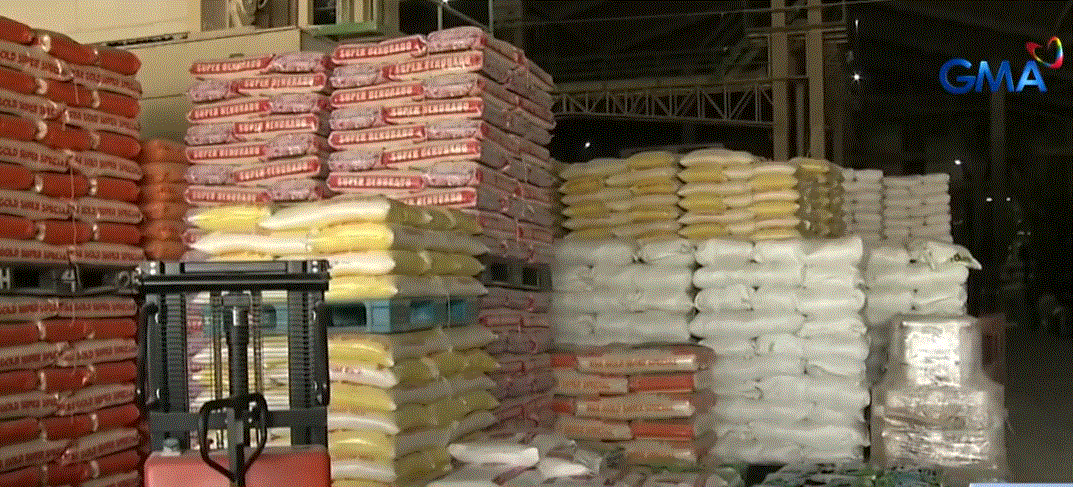DA chief says 'food security emergency for rice' justified

Department of Agriculture (DA) Secretary Francisco Tiu Laurel said Thursday that the possibility of declaring a ''food security emergency for rice' is ''justified,'' saying that there is sufficient data to support this action.
''The data is very clear, we present it to the NPCC, noong tumaas ang presyo ng bigas, world market then tumaas din 'yung local price, nagmaintain siya hanggang ngayon eh pero nagbaba tayo ng taripa from 35 to 15%, hindi bumaba 'yung branded na bigas sa merkado,'' Tiu Laurel said at a Palace press briefing.
''May solid data tayo na justified talaga 'to,'' he added.
Tiu Laurel said he has yet to discuss the matter with President Ferdinand ''Bongbong'' Marcos Jr., adding that he is still waiting for the NPCC's full resolution.
''As of the moment, we're still waiting for the formal transmittal of the recommendation to the DA, once I receive it, then of course I will consult also our President for his comments,'' Tiu Laurel said.
Asked what prompted the NPCC to push for this action, Tiu Laurel said the warehouses of the National Food Authority are already full at capacity.
''The DA is faced now with NFA warehouses full... the NFA warehouses have almost 300,000 tons of rice and harvest season is coming and ang problema namin ngayon, we have to start buying rice. Kung wala kami mapaglagyan, mamomroblema kami,'' Tiu Laurel said.
If NPCC's recommendation is approved, the government will sell 300,000 tons of rice by February.
According to Department of Trade and Industry (DTI) Secretary Ma. Cristina Roque, who chairs the NPCC, the move will allow the NFA to release buffer stock of rice to stabilize prices, replacing released stocks with locally produced rice to support Filipino farmers.
She said this will empower the DTI to take decisive action in protecting consumer welfare while strengthening the country's agricultural backbone.
Currently, the NFA holds 300,000 metric tons of rice in buffer stocks. Releasing these reserves will help decongest warehouses in preparation for the February harvest.
Despite this development, Tiu Laurel said there was no need to increase the country's rice imports.
''No, there is no need to increase rice imports. We are used to temper the businessmen to you know, gawing reasonable 'yung presyo nila while still maintaining profitability,'' he said.
The DA chief said about 4.7 to 5 million metric tons of rice were imported by the Philippines in 2024. Most of the imported rice came from Vietnam, Thailand and Vietnam, government data showed.
P38 per kilo
Tiu Laurel earlier in the day announced the price of the 25% broken rice variety sold at Kadiwa stores will be reduced from the current P40 per kilo to P38 per kilo.
"This price reduction will take effect on Friday, just ahead of the implementation of the maximum suggested retail price (MSRP) of P58 per kilo for 5% broken imported rice," he said.
The MSRP for imported rice is set to be enforced beginning Monday, January 20, initially targeting Metro Manila markets.
The measure will be reviewed monthly to reflect fluctuations in global market prices and tariff rates, with plans to extend the program to other key cities nationwide.
DTI director Cherryl Carbonell also told a House committee on Wednesday that the NPCC is considering declaring an extraordinary increase in food prices to allow the Secretary of Agriculture to declare a food security emergency.
The official said the council is working on a resolution on this policy.
No price reduction
In a House hearing last month, the National Economic and Development Authority (NEDA) disclosed that President Ferdinand "Bongbong" Marcos Jr.'s Executive Order 62, which lowered the tariff on imported rice from 35% to 15%, did not lead to a reduction in rice prices as anticipated.
“This is a puzzle also for us... perhaps this deserves a more nuanced analysis," said NEDA Director Nieva Natural during a House Murang Pagkain Supercommittee hearing.
Natural explained that in a competitive market, the reduction in tariffs should have led to increased rice imports, raising supply and subsequently lowering retail prices. However, this outcome was not observed.
Instead, she noted that dominant market players were pricing goods above competitive levels, making retail prices nearly equal to locally-produced rice.
The DA, however, refuted the statement, adding it observed a price reduction of the staple. —LDF, GMA Integrated News




